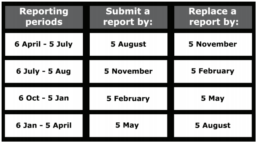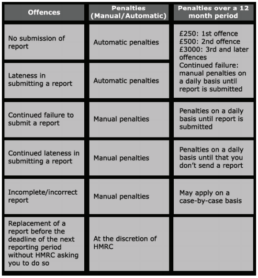Introduction
This guide has been exclusively designed by Churchill Knight & Associates Ltd for recruitment agencies. It is intended to provide more information to you about the changes that were introduced to the Finance Act 2014 which are affecting both onshore and offshore employment intermediaries.
The aim of this guide is to allow you to understand:
- The difference between an offshore and onshore employment intermediary.
- Whether you would fall within the definition on an offshore or onshore employment intermediary and you are affected by the new rules.
- Your statutory obligations under the new law if you are affected.
Who is targeted?
- Self-employed people employed via employment intermediaries.
- All employment intermediaries that supply labour to any other business.
It’s now more important than ever that your recruitment agency has a fully compliant supply chain, with reliable and accredited companies on your Preferred Supplier List. Churchill Knight is committed to ensuring we reach the highest standards in compliance.
Definitions
Wherever used in this guide, the following terms have the meanings indicated below and the singular includes the plural and vice versa:
“Employment intermediary” is a person who makes arrangements:
- For an individual to work for a third person or;
- With an individual to be remunerated for work done for a third person.
“NIC” means National Insurance Contributions.
“ITEPA 2003” means the Income Tax (Earnings and Pensions) Act 2003 which is also known as the ‘Agencies Legislation’ in the industry.
“Excluded services” means the following as per the ITEPA 2003:
- Services as an actor, singer, musician or other entertainer or as a fashion, photographic or artist’s model or;
- Services provided wholly:
- In the worker’s own home, or;
- At other premises which are neither controlled or managed by the client nor prescribed by the nature of the services.
A bit of a background
In a supply chain, an onshore employment intermediary entity is used to facilitate the provision of a worker’s services.
Changes were introduced to the Finance Act 2014 to ensure genuine employment is not disguised as self-employment in order to reduce employment taxes (in particular, NICs) and also to reduce the costs associated with workers’ employment rights.
In a supply chain, an offshore employment intermediary is used to facilitate the provision of the services of UK workers.
Changes were introduced to this legislation to ensure employment taxes, in particular NICs, are paid where offshore employers employ UK workers who are ultimately working for UK-based companies.
Changes in relation to the onshore employment intermediaries
Pre Finance Act 2014
Prior to April 2014, the Employment Intermediaries Legislation would, in summary, apply where:
- An individual (worker) personally provided, or was under an obligation to personally provide services (which were not excluded services) to another person (client).
- The services were supplied by or through a third person (agency) under the terms of an agency contract.
- The worker was subject to (or to the right of) supervision, direction or control as to the manner in which the services were provided, and;
- Remuneration receivable under or in consequence of the agency contract did not constitute employment income of the worker apart from pursuant to the Agencies Legislation.
If the Employment Intermediaries Legislation did apply:
- The services that the worker provided, or was obliged to provide, to the client under the agency contract were to be treated for income tax purposes as duties of the worker’s employment with the agency, and;
- All remuneration under or in consequence of the agency contract (including that which the client paid or provided in relation to the services) was to be treated for income tax purposes as earnings from that employment.
Post Finance Act 2014
In HM Revenue & Custom’s (HMRC) opinion, the market had seen an increase in the use of intermediaries to facilitate false self-employment by exploiting weaknesses in the agencyies legislation.
In response to this, the ‘Onshore Employment Intermediaries: False Self-Employment’ consultation was launched in December 2013.
The stated proposal was to amend Section 44 of the ITEPA to ensure it worked in accordance with the spirit of the law, and this would be achieved by closing the loophole that was currently being exploited in the Agencies Legislation by removing the obligation for the worker to provide their services personally.
Following consultation, amendments were confirmed as having effect from 6 April 2014. Under the revised rules, the legislation applies where the following three conditions are met:
- An individual (worker) personally provides services (which are not excluded services) to another person (client).
- There is a contract between:
- The client or a person connected with the client, and;
- A person other than the worker, the client or a person connected with the client (agency), and;
- Under or in consequence of that contract:
- The services are provided, or
- The client or any person connected with the client pays, or otherwise provides consideration, for the services.
The Agencies Legislation will not apply if:
- It is proven that the manner in which the worker provides the services is not subject to (or to the right of) supervision, direction or control by any person, or;
- Remuneration receivable by the worker in consequence of providing the services constitutes employment income of the worker apart from pursuant to the Agencies Legislation.
Changes in relation to the offshore employment intermediaries
Pre Finance Act 2014
The ‘host employer’ rules (as they were known) were designed to apply when:
- An employee works for a person (relevant person) other than their employer.
- Any payment of (or on account of) Pay As You Earn (PAYE) income of the employee is made by the employer (or the employer’s intermediary) or the relevant person.
- The PAYE regulations do not apply to the person making the payment (or to the employer if the person making the payment is the employer’s intermediary), and;
- Income tax is not deducted, or not accounted for, in accordance with the PAYE regulations.
If these host employer rules applied, the relevant person was deemed to have made the payment of the PAYE income for the purposes of the PAYE regulations, meaning that the person for whom the employee was working became responsible for operating PAYE.
The problem with these host employer rules was that, if the relevant person was resident abroad (and had no UK presence), the PAYE regulations would not apply to them.
However, for the relevant person to be aware that, as a result of this position and pursuant to the host employer rules, they became responsible for operating PAYE on the income, they would need to know that PAYE was not being dealt with by the offshore employer.
Post Finance Act 2014
Following consultations, these rules were amended by the Finance Act 2014. If:
- The employee worked for the relevant person under or in consequences of arrangements made between the relevant person and a third person.
- The third person did not make the payment of (or on account of) PAYE income of the employee, and;
- The PAYE regulations would apply to the third person if the third person were to make such a payment.
- The third person is deemed to have made a payment of PAYE income for the purposes of the PAYE regulations.
As a result of this change, if a UK agency provides the worker to the client, it is the UK agency that must operate PAYE.
The changes mean that the PAYE risk in the supply chain is now a potential issue for any UK agency that provides workers to clients.
There is no longer any comfort in the fact that any action by HMRC would be against the offshore employer—it is now for the onshore agency to ensure that the PAYE regulations are complied with.
Equally, if there is no onshore agency, the risk could pass to the onshore client. These changes therefore mean that there will be one UK entity that HMRC can pursue in the event that PAYE is not operated correctly.
What must recruitment agencies and intermediaries do?
Recruitment agencies are now required to send quarterly HMRC reports that contain details of all workers and their payments where PAYE was not operated, and there are strict deadlines to adhere to. This rule came into place in April 2015.
In the supply chain, the intermediary that has a contract with the client for the worker’s services is responsible for sending the report.
If you only introduce workers to clients, after which you have no further involvement, then you don’t need to provide this information.
A recruitment agency should not be making any financial gain by working with a contractor who is engaging with an offshore intermediary at any stage of the contractual supply chain.
Recruitment agency reporting obligations details
The purpose of the reports is to allow HMRC to easily identify those who have not declared their earnings.
- You have strict deadlines if you are affected.
- Reporting frequency is as follows:

- You must use the updated template laid out by HMRC to generate the report(s).
- The report/s must be uploaded and sent online.
- The report/s must contain the following information:
https://www.gov.uk/government/publications/employment-intermediaries-reporting-requirements/what-this-means-for-an-intermediary – derived from Clause 84G of the Income Tax (Pay As you Earn) (Amendment No.2) Regulations 2015.
- Details not to be included in the report/s:
- Details of workers who are already your own employees.
- Payment details which are already captured in Real Time Information submission by any other entity in the supply chain.
- A report can be replaced after it has been sent. However, it must be done within the replacement deadlines specified above.
Recruitment agency penalties applicable if obligations are not complied with

This guide is being provided to you solely for your personal information. It is not intended for distribution to the press or any other media and may not be reproduced or redistributed by mail, facsimile, electronic or computer transmission or by any other means to any other person or body without the express written permission from a Director of Churchill Knight & Associates Ltd/Churchill Knight Umbrella Limited.
This guide is not a substitute for specific legal, accounting or other professional advice or opinions on related matters and issues that arise and should not be taken as providing specific advice on any of the topics discussed.
The information contained herein has been prepared by using sources believed to be reliable. Whilst reasonable care has been taken to ensure that the facts stated herein are accurate, no representation or warranty, express or implied is made by Churchill Knight & Associates Ltd/Churchill Knight Umbrella Limited, with respect to completeness, correctness, reasonableness or accuracy of any information and opinions contained herein.
Without limiting the generality of the foregoing, liability for any negligent or innocent statement or misstatement in respect of the contents of, or any omission from this guide are hereby expressly excluded. Churchill Knight & Associates Ltd/Churchill Knight Umbrella Limited has no obligation or liability whatsoever with respect to the information provided or any action or inaction of Churchill Knight & Associates Ltd/Churchill Knight Umbrella Limited or the recipient with respect to such information.
The Churchill Knight Group consists of Churchill Knight & Associates Ltd, Churchill Knight Umbrella, Bluebird Accountancy, Bluebird Umbrella and Umbrella Company UK.
Compliance will always be our priority
Churchill Knight Umbrella is proud to be one of the first UK umbrella companies with both an accreditation from the FCSA and SafeRec Certification. We're partnered with hundreds of agencies who equally value compliance and service, and we ensure all of the temporary candidates (contractors and freelancers) that are referred to us receive an exceptional payroll experience - from the initial calculation we provide them to processing their pay for the first time.

The FCSA is the UK’s leading professional body committed to ensuring the compliance of the supply chain of temporary workers.

SafeRec is revolutionary, and having a PSL exclusively composed of SafeRec certified umbrella companies will protect your business and candidates.




